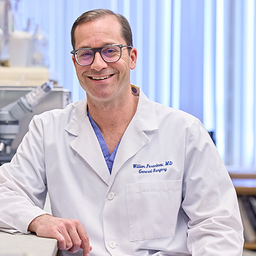Research News from CHOP


CHOP Researchers Show “Cryptic” Viral Peptide Drives Large Part of Immune Response in Influenza A Virus Infection
A new study by researchers at CHOP and Penn has identified an important role for a non-classical MHC molecule that engages with a cryptic viral peptide derived from influenza A virus.

NIH Awards Penn Medicine and Children’s Hospital of Philadelphia $26 Million Grant to Develop Therapies for Rare Newborn Genetic Diseases
A Penn Medicine and CHOP team will seek to develop treatments for three rare, incurable genetic diseases with the help of a $26 million grant from the National Institutes of Health.

CHOP Researchers Validate Pediatric “Allergic March” in Large National Study
In the largest study of its kind, CHOP researchers have validated a population-level pattern of pediatric allergy development known as the “allergic march.”
CHOP Researchers Develop Tool for Helping Predict Alzheimer’s Risk in Various Ethnic Populations
Tool may be more accurate than existing methods and was made possible through a cohort of tens of thousands of patients from different backgrounds around the world.
CHOP Investigator Recognized for Airway Research
Children’s Hospital of Philadelphia (CHOP) researcher Riccardo Gottardi, PhD has been named a “Young Innovator of Cellular and Molecular Bioengineering” by Cellular and Molecular Bioengineering, the official journal of the Biomedical Engineering Society.
CHOP and Penn Researchers Find Behavioral Economics Strategies Can Help Patients Quit Smoking After a Cancer Diagnosis
“Nudges” from electronic health records could improve the implementation of tobacco use treatment almost three-fold over standard care.

CHOP Treats 500th CAR T Patient
CHOP has treated its 500th patient with CAR T-cell immunotherapy, a “living drug” that harnesses the power of a patient’s own immune system to fight cancer.

CHOP Researchers Reveal How NSAIDs Worsen C. difficile Infections
CHOP researchers have shown that NSAIDs disrupt epithelial cells in the colon and sensitize them to C. difficile toxins by perturbing cell mitochondria.
Interpersonal and Structural Stigma Toward Sexual Minority Youth Create Mental Health Challenges, Increased Suicide Risk
CHOP researchers suggest more targeted intervention against discrimination, particularly in states with higher rates of structural stigma.

Researchers Develop “In Vivo” Gene Editing Model for Blood Disorders
CHOP and Penn researchers have developed a proof-of-concept model for delivering gene editing tools to treat blood disorders directly within the body.